Seasonal allergies also known as hay fever or allergic rhinitis can be a nuisance causing itchy throat, runny nose and water eyes. These symptoms develop when the immune system overreacts to allergens like plant pollen, dust or animal dander.
Treatment usually involves an over-the counter medication. However, lifestyle changes and adding certain foods to your diet may help mitigate the nuisance of allergy symptoms. Below are five foods/spices that you may want to add to your allergy fighting arsenal to help alleviate those annoying allergy symptoms.
1. Ginger
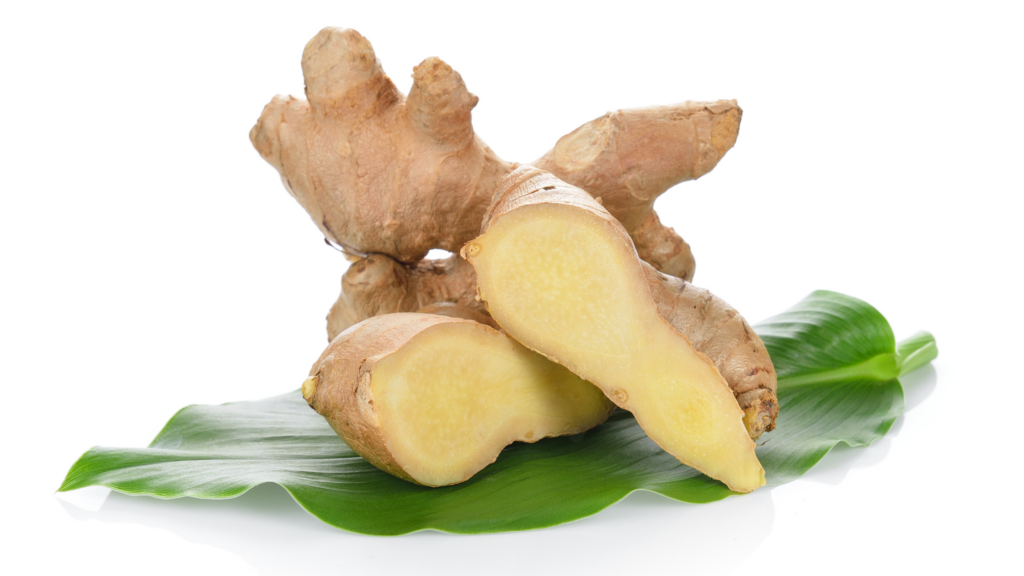
Ginger has been used for thousands of years for the treatment of colds, nausea, joint pain, migraines and inflammation. Because of ginger’s anti-inflammatory properties, it may help to alleviate symptoms of allergic rhinitis.
A study in the BMC Complementary Medicine and Therapies assessed the efficacy and safety of ginger extract in comparison with loratadine for allergic rhinitis treatment. It was concluded that ginger extract is as good as loratadine in improving nasal symptoms and quality of life.
However, the ginger extract caused less side effects like drowsiness, fatigue, dizziness and constipation. Adding ginger to curries, stir fires and baked goods or making ginger tea is a great way to incorporate this powerful spice into your diet.
2. Turmeric
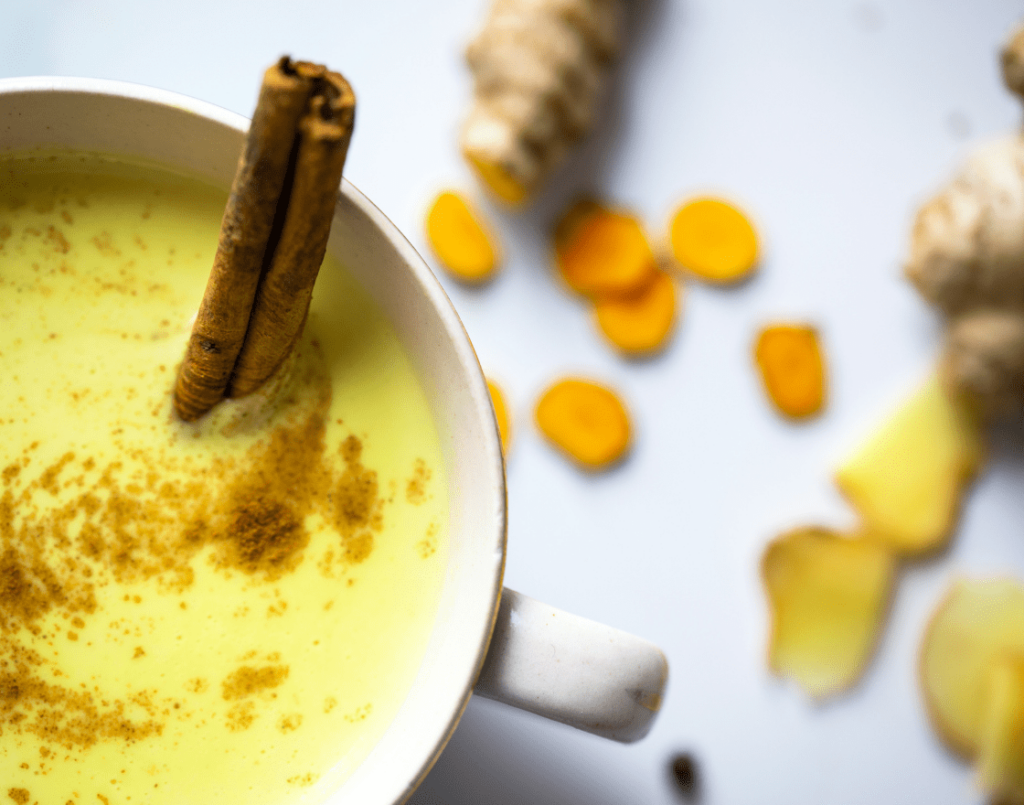
Turmeric is a traditional Indian spice with a powerful compound called curcumin that provides anti-inflammatory and anti-allergic benefits. A study in the Annals of Allergy, Asthma, & Immunology that showed an improvement in nasal airflow and a positive effect on immune response in patients with allergic rhinitis who took curcumin.
Fresh or ground turmeric can be used in cooking or taken as supplements. When cooking with turmeric, it’s recommended to pair turmeric with black pepper because it can increase the bioavailability of curcumin by up to 2000%. The piperine in black pepper helps your body absorb more curcumin.
Try this delicious Golden Milk recipe that’s infused with turmeric and ginger to your bedtime routine which may help you get a more restful sleep.
3. Vitamin C Rich Foods
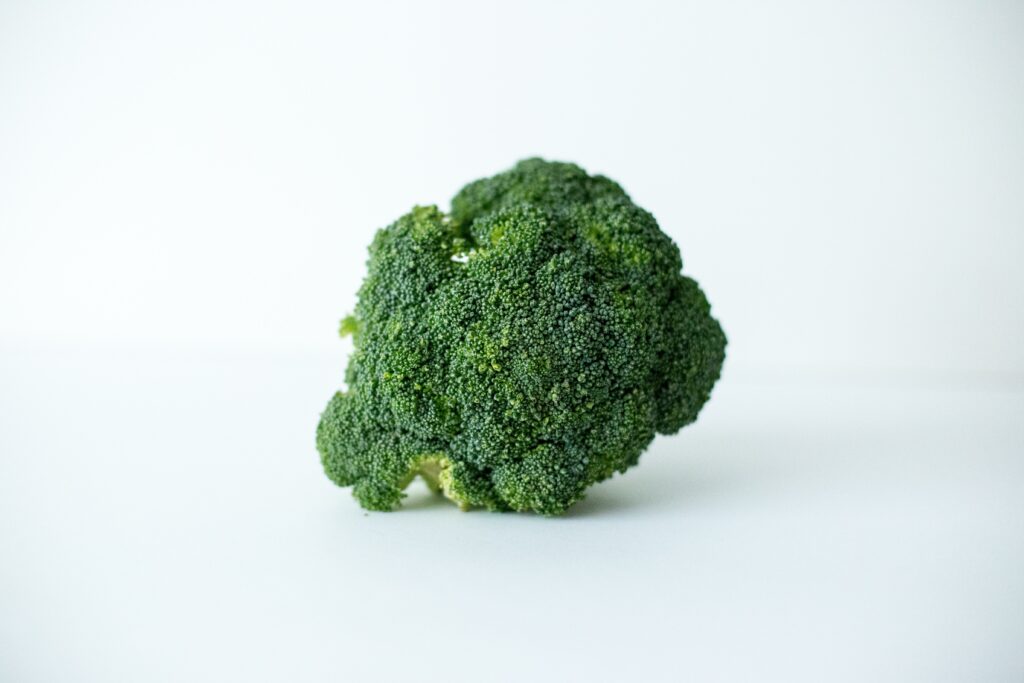
Vitamin C is a potent antioxidant which helps to counteract the inflammatory allergic responses that cause allergy symptoms like sneezing and runny nose. Taking vitamin C during allergy season can help slow down the overreaction of environmental triggers by decreasing histamine production.
Adding broccoli to your diet will provide you with a good source of vitamin C. In addition, broccoli contains naturally occurring compounds which may protect against respiratory inflammation causing conditions like asthma, allergic rhinitis, and chronic obstructive pulmonary disease, according to findings published in the journal of Clinical Immunology. Below are foods that are rich sources Vitamin C that you can incorporate in your diet:
- Broccoli- higher in vitamin C than oranges
- Sweet yellow peppers
- Berries
- Brussel Sprouts
- Tomatoes
- Kiwi
4. Green Tea
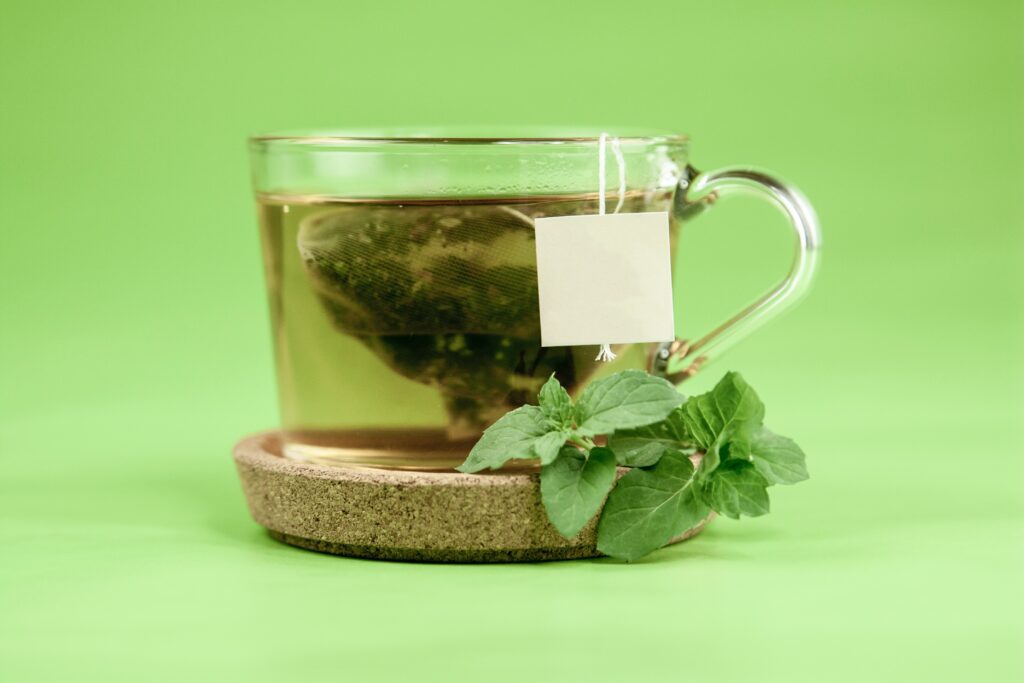
Sipping on hot tea can help you to feel better when you have a stuffy nose or sore throat. Green tea is is a natural anti-inflammatory and is rich in antioxidants. The antioxidant compound called EGCG that’s found in green tea may help ease allergy symptoms.
In addition, green tea is rich in quercetin, a plant compound that promotes anti-inflammatory protection against allergens. Quercetin gives green tea its color and helps to block allergic reactions caused by pollen, dust and animal dander.
The antioxidants in green tea may provide you with many other health benefits from improved brain function, fat loss, protection against cancer, and lowering the risk of heart disease.
5. Tomatoes
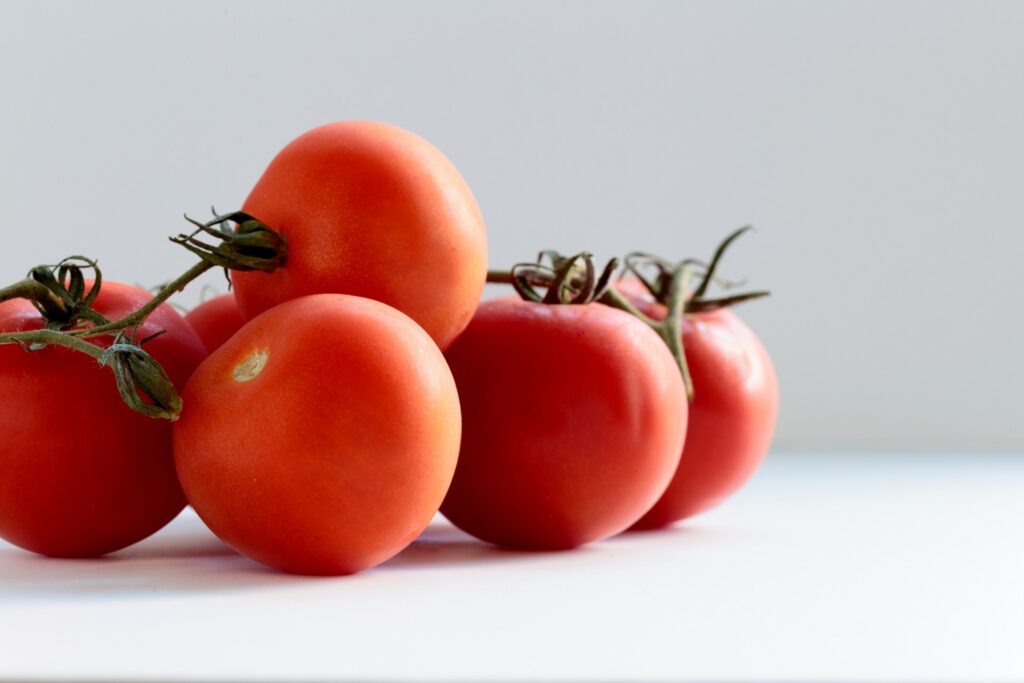
Fresh Tomatoes
Tomatoes are a rich source of lycopene an antioxidant that can help reduce inflammation caused by an allergic reaction. One study suggests eating 2-4 servings of tomatoes daily helps to alleviate symptoms that were associated with asthma, such as wheezing and shortness of breath.
It’s important to note, previous studies have shown the absorption of lycopene is greater from processed tomatoes than fresh tomatoes. The processing of tomatoes breaks down the cell matrix and makes lycopene more bioavailable.
A study in the Asia Pacific Journal of Clinical Nutrition found that the addition of olive oil in diced tomatoes during cooking greatly increases the absorption of lycopene.
Not only does lycopene offer anti-allergic benefits but also offers other health promoting benefits such as protection against certain types of cancer, promoting heart health and protecting your skin against sunburn.
To sum it up, while there are no foods that can prevent seasonal allergies, choosing foods that are nutrient-dense with anti-inflammatory, anti-allergic compounds can help to alleviate seasonal allergy symptoms and reduce inflammation..
Finally, it is best to consult with a registered dietitian nutritionist or your healthcare provider before adding supplements to your daily regimen or changing your diet significantly in order to avoid a food-drug interaction.

